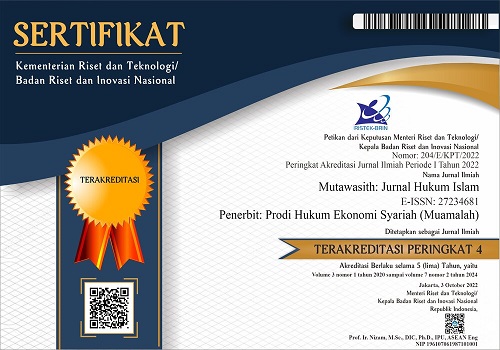Kedudukan Non Muslim dalam Berperkara di Pengadilan Agama Atas Dasar Asas Personalitas Keislaman
Abstract
The principle of Islamic personality is one of the general principles contained within the Religious Courts. This research tries to examine the position of non-Muslims in litigation in the Religious Courts on the basis of the principle of Islamic personality. This study uses a normative juridical approach (doctrinal research) with descriptive analytical research specifications, namely by examining library materials through searching and studying some of the literature (in the form of library data, journals, internet media, magazines and supporting research results) related to application and development of the principle of Islamic personality within the religious courts. The results of the research show that the principle of Islamic personality can be interpreted by emphasizing that the litigants must be both Muslims; Disputed cases must concern marriage, inheritance, wills, grants, endowments, zakat, infaq, shadaqah and sharia economics; The legal relationship that underlies these civil matters is Islamic law. So with this principle it is possible for non-Muslim citizens who are subject to the provisions of Islamic law to settle their disputes in the Religious Courts.
Downloads
Authors retain copyright and grant the journal right of first publication with the work simultaneously licensed under a Creative Commons Attribution 4.0 International License that allows others to share the work with an acknowledgement of the work's authorship and initial publication in this journal.
















.png)




